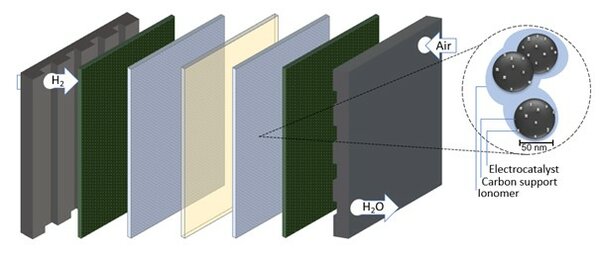Polymer electrolyte fuel cells (PEFCs) are promising for transportation applications, as they allow fast refilling, pollution-free and high-power operation. In PEFCs, hydrogen is fed on the anode while air is fed on the cathode. Through electrochemical reactions, only water, electricity and heat are produced. No fossil fuels are used during the operation of the PEFCs and thus are promising for the decarbonization of the transport sector. The fundamental challenge of applying PEFCs in heavy-duty vehicles and maritime applications is the necessity of platinum as the electrocatalyst. They are both costly, scarce and suffer from degradation. The state-of-the-art catalyst consists of platinum nanoparticles dispersed on Carbon Black and is bound with an ionomer to produce proton conductivity. Alternative electrocatalysts without noble metals will dramatically improve the cost-competitiveness of the technology. The project aims to redesign the catalyst layer by tuning the activity and stability of noble metal-free catalyst morphologies.


Contact details:
Winnie Kong
SMP-EMS
Helix, STO 1.26
w.y.kong@tue.nl